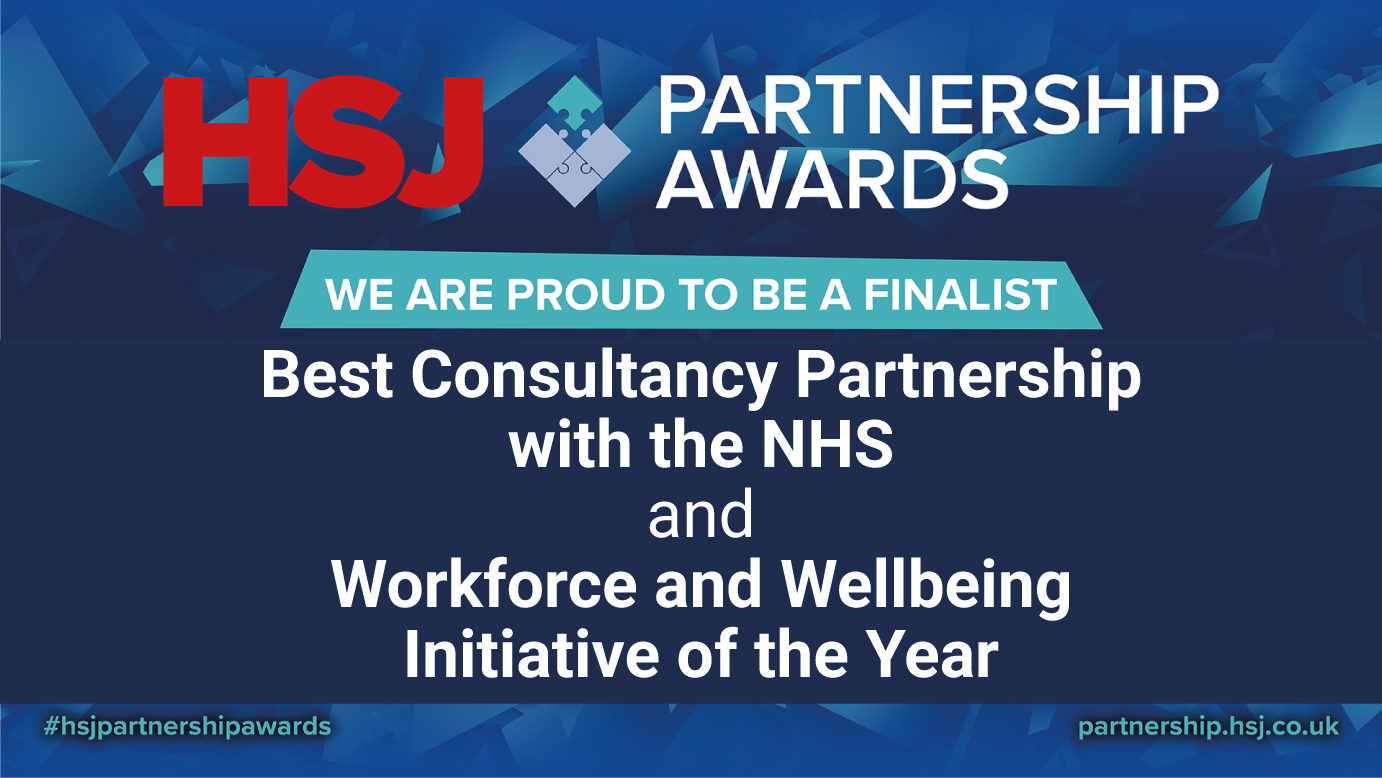Navigating the Future of NHS Workforce Management - Unveiling the Top Five Trends for 2023/24

In the dynamic world of healthcare, the NHS is continuously adapting to the complexities of workforce management. The challenges are multifaceted, from an ageing population and escalating demand for services to a scarcity of skilled staff. However, the NHS, with its indomitable spirit, is not one to back down from these hurdles. Instead, it’s time to shift our gaze from the problems to the potential solutions. Are these solutions feasible? Will they be embraced? Or are they counter productive?
The world we inhabit today is vastly different from what it was just a few years ago. We must pivot from the well-trodden path to explore new avenues. This shift is crucial to overcoming the challenges and emerging victorious. Innovation is not synonymous with improvement and a seed sown on concrete will not sprout. In other words, without altering the environment, groundbreaking strategies will not thrive. Let’s first glance at some potential solutions before delving into the specifics.
Here are the five trends in NHS workforce management that are worth keeping an eye on in 2023/24:
Trend One: The Emergence of External Workforce Providers
NHS trusts are increasingly leveraging external workforce providers to address staffing needs. These providers offer a range of services, from supplying temporary staff to managing recruitment and onboarding. Despite the non-ideal reliance on agencies, it’s become necessary, highlighting the need for structural changes. Interestingly, engaging with emerging external providers who focus on demand and capacity planning, gap analysis, and service redesign can help reduce the reliance on temporary staffing. Thus, the solution to reducing dependence on external workforce providers may involve strategic partnerships with them.
Data Insights: According to NHS Digital, the number of locum doctors in the NHS increased by 15% between 2018 and 2020. The Nuffield Trust reported that the NHS’s expenditure on agency staff rose from £4.7 billion in 2018/19 to £6.1 billion in 2021/22. This trend is expected to continue, despite a £5.7 billion cap on agency spending by 2024/25.
Trend Two: The Adoption of Artificial Intelligence
Artificial Intelligence (AI) is making significant inroads into the NHS, enhancing workforce planning. AI-powered tools can forecast service demand, identify staffing gaps, and optimise staffing schedules. The potential applications of AI in healthcare are seemingly endless, and even those not directly related to workforce planning can impact workforce demands.
Data Insights: A study by the Nuffield Trust suggests that AI could save the NHS £1.2 billion per year by 2030. This is due to the automation of tasks such as forecasting demand for services, identifying staffing gaps, and optimising staffing schedules. Furthermore, a report by the King’s Fund found that AI could enhance the efficiency and effectiveness of workforce planning. A survey by NHS Digital revealed that 40% of NHS trusts are already utilising AI in some capacity. The NHS reported that the NHS is investing over £200 million in AI with £123 Million already in place..
Trend Three: Prioritising Well-being and Retention
The NHS is increasingly acknowledging the importance of staff well-being and retention. This has led to a shift towards flexible working practices, improved work-life balance, and other initiatives aimed at attracting and retaining staff. It’s crucial to ensure that staff are motivated, content, and engaged, especially given the widest recruitment gap in the NHS’s history. As mentioned previously our landscape has changed and the NHS needs to adapt, non-traditional routes will become the path most commonly travelled.
Data Insights: A survey by the NHS Confederation found that 70% of NHS staff feel their workload is too high. A study by the King’s Fund discovered that staff who are more satisfied with their work are more likely to stay in their jobs. The NHS People Plan reported that the NHS is investing £1.5 billion in staff well-being over the next five years.
Trend Four: Transitioning to Integrated Care Systems
The NHS is transitioning towards integrated care systems, necessitating a more collaborative approach to workforce planning. Trusts will need to cooperate to ensure the right staff are in the right places. For the integrated care model to work effectively, it requires the right tools and approaches.
Data Insights: A report by the King’s Fund suggests that integrated care systems could improve the efficiency and effectiveness of workforce planning. The Nuffield Trust found that integrated care systems could save the NHS £1.5 billion per year by 2030. A survey by NHS England found that 70% of NHS leaders believe that integrated care systems are essential to the future of the NHS.
Trend 5: Building Resilience
The NHS must be resilient to handle unexpected changes or crises. This involves having a workforce that is flexible, adaptable, and can be scaled up or down as required. Resilience will only be achieved by adopting and perfecting the above four trends.
Data Insights: A survey by the Health Foundation found that 92% of NHS trusts had concerns about staff wellbeing, stress, and burnout following the pandemic. A study by the King’s Fund found that the NHS workforce is facing a number of challenges, including an ageing population, increasing demand for services, and a shortage of skilled staff. As stated above, the NHS People Plan reported that the NHS is investing in staff well-being.
The Road Ahead
As we navigate the future of NHS workforce management, these trends will likely play a pivotal role. By embracing these new approaches, your NHS organisation can enhance its ability to meet future challenges and deliver high-quality patient care.
As the NHS faces ongoing staffing challenges, the role of external workforce providers is becoming increasingly important. These providers offer a flexible workforce that can be adjusted according to needs. While this approach can be effective if cost-effectively managed, the real trend may be a shift in how we engage with these providers. Instead of solely relying on them for staffing, we could leverage their expertise in demand and capacity planning. This strategic shift could reduce the reliance on agency staff and lead to more sustainable workforce solutions.
The Adoption of Artificial Intelligence (AI): AI is set to become even more prevalent in NHS workforce management. By automating tasks such as forecasting demand and optimising staffing schedules, AI can free up NHS staff to focus on more complex and demanding tasks.
Prioritising Well-being and Retention: The NHS is increasingly recognizing the importance of staff well-being and retention. This trend is likely to continue as the NHS strives to attract and retain the best staff. This means that NHS trusts will need to offer flexible working practices, improved work-life balance, and other initiatives that can help to improve staff well-being.
Transitioning to Integrated Care Systems: Integrated care systems are still in their early stages, but they are likely to become more widespread in the coming years. This is because they can improve the efficiency and effectiveness of workforce planning. This means that NHS trusts will need to work together to ensure that they have the right staff in the right places.
Building Resilience: The NHS has been facing a number of challenges in recent years, such as the COVID-19 pandemic. This has highlighted the need for the NHS to have a resilient workforce that can adapt to unexpected changes or crises. This means that NHS trusts will need to have plans in place to deal with unexpected events.
To stay ahead of the curve, it’s crucial to keep abreast of the latest trends in NHS workforce management. This can be achieved by reading industry publications, attending conferences, networking with other healthcare professionals, and using online resources such as the NHS Workforce Hub.
The future of NHS workforce management is likely to be shaped by these trends. By adopting these new approaches, your NHS organisation can improve its ability to meet the challenges of the future and deliver high-quality care to patients. I hope this article has been insightful. If you have any questions, please feel free to reach out to me.
Conclusion
The future of NHS workforce management is not without its challenges. However, by embracing these emerging trends and investing in the right areas, the NHS can create a more resilient, efficient, and effective workforce. There has to be a mindset shift. This will not only benefit the NHS as an organisation but also the patients it serves. Remember, the key to navigating the future is not to predict it, but to prepare for it.














